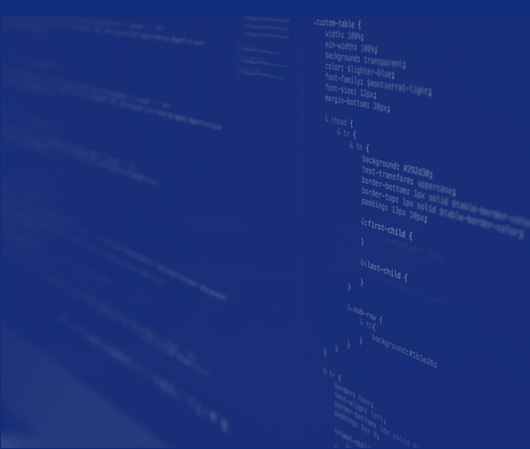BED Bust SEO Jargon
A-Z of SEO Jargon
Firstly, what is SEO? SEO or ‘Search Engine Optimisation’ is the optimising of a website so that it ranks as high as possible in search engines. You’ve probably heard it over and over, but not quite sure what it means or what it includes.
301 Redirect
If your site has old links that have been deleted, moved or renamed, you can put 301 redirects in. This will automatically redirect the visitor to the new/most relevant page on the current site. Search engines can update their indexes using this and also reduces the number of 404 errors that can harm your ranking by poor user experience.
404 Errors
If a search engine or another site is linking to your site where the link is no longer in use (has been deleted, moved or renamed) this will bring up a 404 error. Missing links will put off potential customers as it creates a poor user experience which can lead to a poor ranking through increased bounce rate.
Alt/Alternative Text
When an image cannot load on a site this is the text that displays in its place. Search engines use this text to determine what the page is about so use simple keywords to describe the image. People using a screen reader also benefit from this as the text is read out to the visitor so visually impaired people know what the image is showing.
Backlink
When another site links to your website on theirs, that is a backlink. Google will rank sites higher the more backlinks there are to your site and the higher ranking the site that is backlinking to you, the better it is for your site.
Bounce Rate
The percentage of people landing on your site and leaving instantly before looking at anymore pages. Sites with a high bounce rate will be ranked lower than those with a low bounce rate.
Crawling
This is how search engines put information together about your site. You have to ensure the crawls can be performed or your pages will not appear in search results.
Duplicate Content
Search engines will only rank the page they deem to be the original for identical copy on the internet. It is best to avoid duplicating pages to eliminate this confusion.
Heading tags
Throughout your text, when you use heading tags (appear as <h1> <h2> etc. in the HTML) these will be read by the search engine to determine what the page is about, although now less important in the SEO algorithms.
Indexed
Search engines go through pages and index them after crawling.
Keywords
The word or phrase that users use to search on search engines. You can do keyword analyses to work out what it is people search for in your sector and focus your content around these words.
Loading time
This is the time taken to load your page on average for your visitors. A slow page speed can increase your bounce rate with visitors not willing to wait for the content to load. In turn, the poor bounce rate will get you marked down in search rankings.
Metadata
This is the data in your website that the search engines receive to tell them what the site is about. Keeping this keyword rich will help refine to relevant search terms.
Meta descriptions
The descriptions are the small summary of the page and are often used as the text that appears under the page title on search results or social media. This isn’t used to rank your site but must be written well to encourage people to click on your link in the results. Meta descriptions can get automatically generated or you can use SEO plug-ins to manage them.
Mobile Friendly
Google’s algorithms require your site to be mobile friendly to be ranked highly. Have a peep at one of our more recent blogs to see what this requires from the setup of your site.
NoIndex tag
You can include these tags on pages you do not want to be indexed in the search engines. Don’t have too many of these on your site or people will struggle to find your site!
Outbound links
These are links that you have on your site to other websites. Directing users to useful content elsewhere helps promote a good user experience and boost you in the rankings.
Postal Address
Displaying your address clearly and consistently across the site will help search engines pick up your location. This is crucial to help search engines list you in local search results.
Robots.txt
This is a file for your site that instructs search engines which pages it should list. Make sure this is correct or your site will not appear correctly.
Sitemap
This is a list of pages on your site that the search engines use to index the content on your site.
Webmaster Tools
This is a tool provided by Google to help you monitor the success of your site with the search engine crawls. It is very handy as you can scour through the information to see where you can improve and Google will alert you when something is not right (less of a mystery why you are being penalised in the rankings then!).
www.
When you have your site listed with a sub domain – jargon bust here, your site is listed with and without ‘www.’ i.e. www.bigeyedeers.co.uk and bigeyedeers.co.uk – only one should be used for content and the other needs to have 301 redirects.
Let us know if you have any queries or any other bits of confusion and we’ll be happy to help translate the SEO language! Worth a chat with BED to see what improvements could be made to your site to help you jump up the Google rankings!
Magento
eCommerce
Magento is the leading solution for eCommerce, and we’re specialists. Magento is easy-to-use, completely customisable and endlessly scalable.

Bespoke
Builds
We offer custom web development services for any requirement. Manufacturing from scratch, we deliver a project entirely tailored to your needs.

Working with brands nationally from our offices in Cardiff and Exeter, our tenacious team of designers and developers deliver sophisticated results every time.


